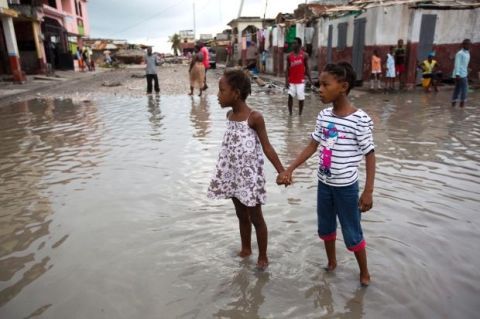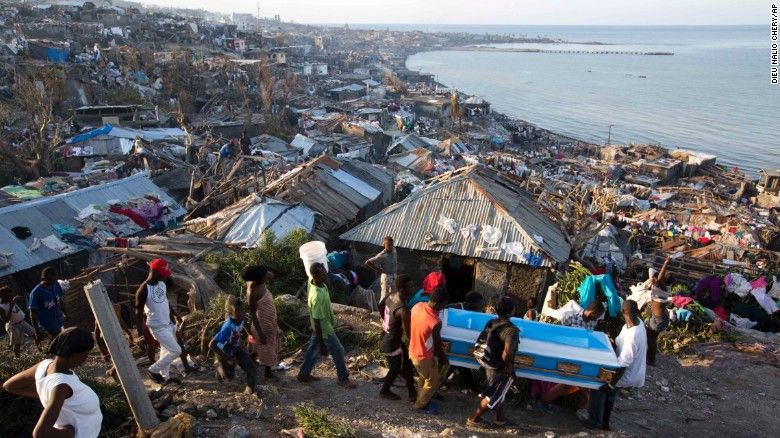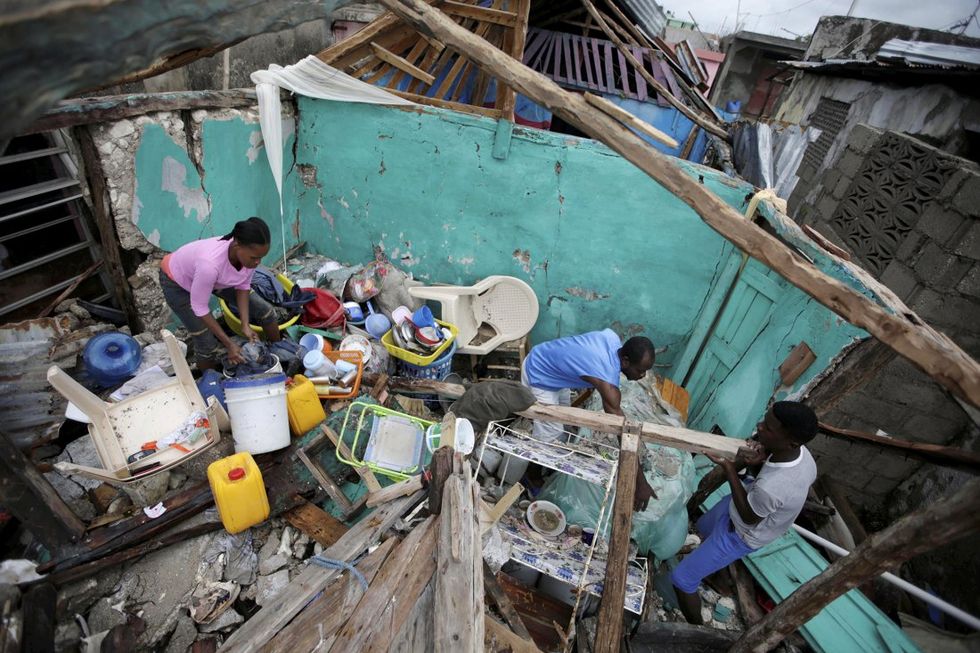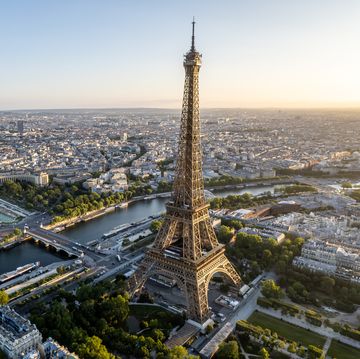Almost seven years ago, an earthquake struck Haiti which killed 300,000 people and left 1.5 million people without a home.
Haiti, which is the poorest in the Western hemisphere, was only just beginning to rebuild itself when it was struck by Hurricane Matthew, the worst storm to hit the country in almost 10 years.
The storm has killed more than 1,000 people and completely flattened vast parts of the region, destroying the crops and livestock needed to feed the country.
Haitian authorities have had to resort to burying victims in mass graves in the aftermath of the devastation, and the remaining standing communities have been left saturated in knee-deep water, poignantly symbolised by the image of two Haitian girls holding hands as they help each other wade through a flooded street.
And whilst the media's gaze might be focused on the exponentially ludicrous Presidential race, it is estimated that 1.4 million people in Haiti are in desperate need of humanitarian assistance.
Although the immediate threat of the storm has passed, there are fears growing over the cholera outbreak following the widespread flooding and the remaining communities' limited access to food or clean drinking water.
Here is a list of relief charities that you can support :
UNICEF
Unicef is focusing its efforts on children and families in greatest need, with an emphasis on providing clean water and sanitation to avoid a major cholera outbreak.
Unicef Haiti's Chief of Communications, Cornelia Walther says, 'The water system was weak before Matthew and is now in large parts dysfunctional. In collaboration with the Government and NGO partners water chlorination points are set-up to ensure the water that people fetch is safe, bladders are set up in points of dense population and water trucking provides water in the hardest hit locations.'
'In addition, there are 100,000 children with no access to education. We are working with the Ministry of Education to provide temporary schooling'
You can support UNICEF's work in Haiti here
Oxfam
Damien Berrendorf, Director of Oxfam in Haiti says: "Our greatest fear is that loss of crops and possible spread of cholera will cause more deaths than the actual hurricane.'
Oxfam is working to provide three tonnes of water purification equipment and giving out hygiene kits, which are urgently needed to halt the spread of cholera and other diseases, along with construction materials.
You can donate to Oxfam here
Save The Children
Fay Hoyland from Save The Children says, 'Our main concerns are cholera and vulnerable children, thousands of whom are out of school.'
'Our initial emergency response has focused on distributing food and non-food items i.e shelters and we are now also deploying members of our emergency health team to set up an Emergency Health Unit and setting up Child Friendly Spaces to provide psychosocial support for children and a safe place for them to play and learn.'
Donate to Save The Children here
Action Aid
Yolette Etienne, who is leading the emergency response team on the ground says, 'Vital food sources have been almost entirely destroyed. People have lost their food supply and face real hardship unless they get the support they need.'
ActionAid is working with local community partners to distribute food, water and cholera kits, containing hygiene and water purification equipment.
Donate to Action Aid here















